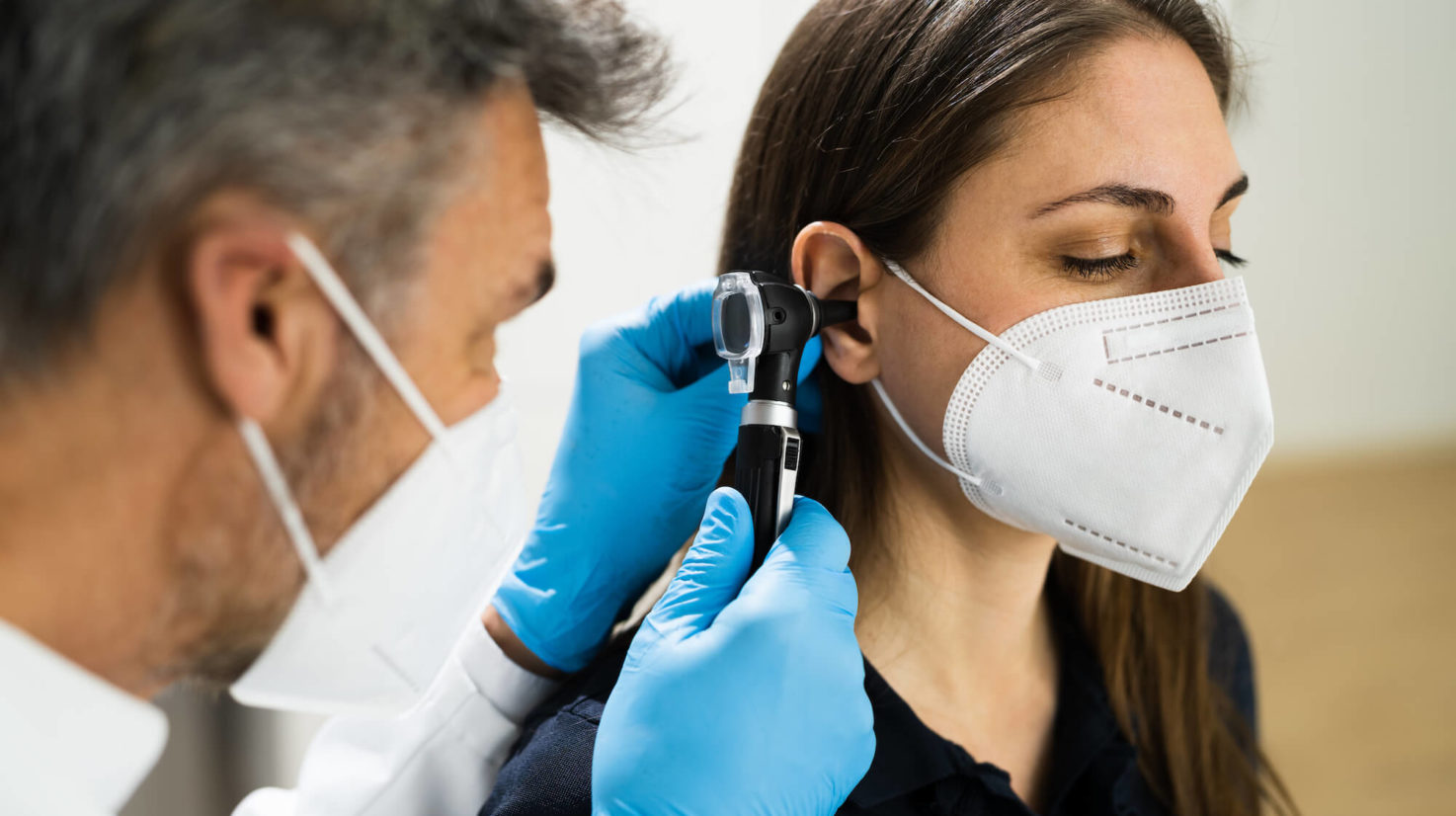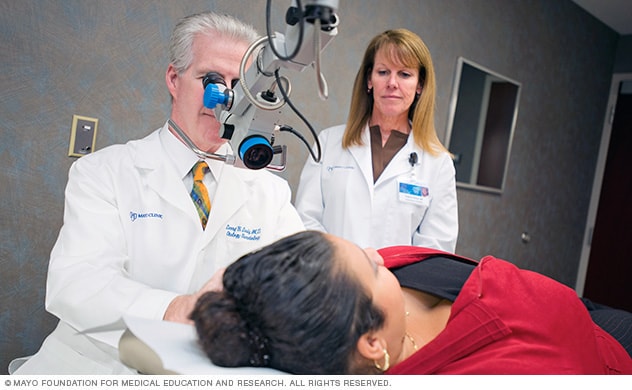How an Otolaryngologist Helps in Diagnosing Complex Head and Neck Conditions
How an Otolaryngologist Helps in Diagnosing Complex Head and Neck Conditions
Blog Article
Discovering the Area of Otolaryngology: What to Anticipate When You Get In Touch With an ENT
Otolaryngology, generally described as ENT, includes the medical diagnosis and therapy of throat, ear, and nose problems. For those experiencing related issues, getting in touch with an ENT specialist can provide clearness and relief. Comprehending what to anticipate throughout such examinations is vital for reliable communication and care. This introduction will certainly outline vital aspects of the ENT experience, including typical factors for brows through and the processes included in medical diagnosis and therapy.

Recognizing Otolaryngology: A Review
Otolaryngology, commonly referred to as ENT (Nose, ear, and throat) medication, is a specialized branch of medicine that concentrates on the diagnosis and therapy of problems impacting these important locations of the body. This field includes a variety of disorders, including those associated to hearing, equilibrium, respiratory function, and speech. Otolaryngologists are trained to take care of both clinical and medical treatments, making use of advanced strategies and modern technologies. Their proficiency prolongs past traditional disorders, attending to problems such as allergies, sinus infections, and hearing loss. In addition, they play an important duty in the monitoring of head and neck cancers cells, offering extensive care customized to private patient demands. Generally, otolaryngology continues to be crucial for preserving health and wellness and lifestyle in afflicted people.
Usual Reasons to See an ENT Professional
Several individuals look for the knowledge of an ENT professional for a selection of factors, showing the diverse nature of conditions that affect the throat, nose, and ear. Usual concerns consist of persistent sinusitis, which typically results in consistent nasal blockage and face pain. Allergic reactions and their associated symptoms, such as sneezing and itching, likewise prompt visits to these specialists (ENT). Hearing loss, whether unexpected or progressive, is one more significant reason for assessment. On top of that, people might look for evaluation for throat disorders, including persistent hoarseness or swallowing difficulties. Sleep apnea, characterized by cut off breathing during rest, is often addressed by ENT specialists also. Each of these conditions highlights the importance of specialized treatment in managing complex ENT-related wellness issues
Preparing for Your ENT Consultation
When preparing for an ENT appointment, it is important to collect relevant information and think about any kind of specific problems. Clients should put together a thorough medical background, consisting of previous ear, nose, or throat issues, surgical treatments, and existing medicines. Recording symptoms-- such as regularity, period, and intensity-- can provide important understandings for the ENT specialist. In addition, people must prepare a list of questions they wish to ask, ensuring that all issues are addressed during the visit. Bringing along any kind of appropriate clinical documents or examination results can better help the ENT in recognizing the person's problem. Clients need to verify their consultation details, including location, day, and time, to minimize any kind of last-minute confusion. Correct prep work can enhance the performance of the appointment and lead to better outcomes.
What to Anticipate During the Assessment
As the consultation starts, the person can anticipate to take part in a detailed discussion with the ENT expert concerning their symptoms and medical history. The expert will ask concerning the period, frequency, and extent of signs and symptoms such as hearing loss, nasal congestion, or sore throat. In addition, the person's previous clinical problems, medicines, and any kind of relevant family history will certainly be assessed, assisting the professional in developing a total understanding of the client's health and wellness. The ENT might also inquire about lifestyle aspects, such as direct exposure to allergens or toxic irritants. This open dialogue develops a structure for the examination, making sure that the client's worries are addressed and setting the phase for any kind of necessary examinations or suggestions for therapy.
Diagnostic Examinations and Procedures in Otolaryngology
A variety of diagnostic examinations and treatments are important in otolaryngology to properly assess and identify problems impacting the ear, throat, and nose. Common examinations consist of audiometry, which gauges hearing function, and tympanometry, assessing center ear stress. Nasal endoscopy permits visualization of the nasal passages and sinuses, while laryngoscopy checks out the throat and vocal cables. Imaging methods, such as CT scans and MRIs, provide in-depth views of head and neck structures. Allergy screening might likewise be carried out to recognize triggers for sinus or respiratory system website issues. These analysis tools enable ENT experts to establish an extensive understanding of individuals' problems, guaranteeing customized and effective management strategies. Correct medical diagnosis is important for effective treatment outcomes in otolaryngology.
Therapy Options Supplied by ENT Specialists
ENT professionals use a variety of treatment options tailored to attend to specific conditions impacting the nose, throat, and ear. These therapies range from conservative methods, such as medicine and way of living alterations, to even more intrusive procedures. Allergic reactions may be managed with antihistamines or immunotherapy, while chronic sinus problems could need nasal corticosteroids or sinus surgical procedure. For hearing loss, ENT experts often advise listening device or medical interventions like cochlear implants. In situations of throat problems, options can include speech therapy or surgical treatments to remove blockages. Additionally, they may supply support for taking care of rest apnea, consisting of using CPAP tools or surgical interventions. On the whole, the objective is to enhance patients' high quality of life through personalized care and efficient treatment methods.
When to Seek Follow-Up Treatment With an ENT
Identifying when to look for follow-up care with an ENT expert is essential for taking care of continuous signs and symptoms or problems associated to ear, throat, and nose problems. Clients must consider arranging a follow-up appointment if symptoms linger regardless of first therapy, such as chronic ear pain, nasal congestion, or throat pain. Changes in hearing, equilibrium problems, or unusual nasal discharge may additionally call for additional evaluation. Additionally, if a patient experiences adverse effects from suggested medicines or has actually undertaken a surgical procedure, follow-up treatment is essential to keep an eye on recuperation and attend to any issues. Prompt examinations can assure efficient administration of problems, protect against possible difficulties, and give assurance relating to one's health. Seeking follow-up treatment advertises positive health and wellness administration in otolaryngology.
Often Asked Concerns

What Credentials Should I Try to find in an ENT Expert?
When looking for an ENT expert, one ought to look for board qualification, relevant experience, and solid client evaluations. Furthermore, effective communication abilities and a thoughtful technique can significantly boost the total therapy experience.
Just how Do I Select the Right ENT for My Demands?
Picking the right ENT professional entails evaluating their qualifications, experience, and person reviews (Hearing). It is vital to consider their interaction design and approach to therapy, guaranteeing they line up with the individual's certain health needs and preferences
Are There Any Type Of Threats Connected With ENT Procedures?
The risks connected with ENT procedures might include infection, blood loss, anesthetic difficulties, and prospective damage to surrounding structures. People should go over these risks with their physician to understand individual worries and warranty educated choices.
How Can I Manage Anxiety Prior To My ENT Appointment?
To manage anxiousness prior to a visit, individuals can practice deep breathing workouts, picture favorable end results, prepare inquiries ahead of time, and seek support from buddies or family, promoting a feeling of confidence and peace.
What Should I Do if I Experience Adverse Effects From Therapy?
The person needs to without delay report them to their health care supplier if side results from therapy take place. Modifications to therapy or added interventions may be required to ensure safety and security and effectiveness in managing their problem - ENT. As the appointment starts, the individual can expect to engage in an extensive discussion with the ENT professional about their symptoms and medical background. These analysis tools enable ENT professionals to establish an extensive understanding of clients' conditions, making sure customized and effective administration strategies. ENT specialists use a range of therapy choices customized to attend to specific conditions impacting the ear, throat, and nose. When looking for an ENT specialist, one need to look for board certification, pertinent experience, and strong client evaluations. Picking the appropriate ENT professional entails evaluating their certifications, experience, and individual testimonials
Report this page